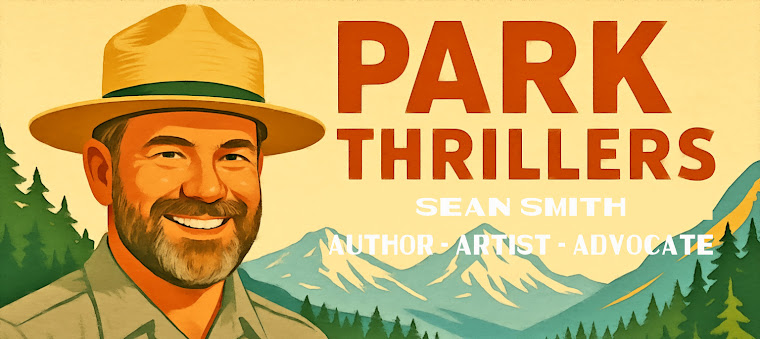 |
| Michael Gray |
National
parks are all over the news these days. From stories about a “Creepy” graffiti bandit to efforts by some states to seize our national heritage, national parks are at the top of
the national discussion. At the heart of many of these stories is a question,
one that has perplexed the Park Service from before its inception, how can the
park system remain relevant in our modern world? Some even go so far as to
question the conservation ethic which serves as the Park Service’s guiding
management principle, claiming it should be buried.
Everyone
seems to have an idea on how to make the parks relevant. Suggestions range from
giving the parks to the states, providing new or expanded access for
recreational activities like mountain biking or providing new amenities like
high speed internet and cell phone services.
Putting
aside the fact that national parks like Glacier and Rocky Mountain continue to break visitation
records, pundits bemoan the fact that the current park system is a throwback to
an ancient time. If national parks are
to remain relevant especially to millennials and minorities the park system
must get with the times.
But is this
the case? Are we standing on a historic precipice? Must we so dramatically
change the park system to save it, that it would be hardly recognizable to
visitors even a decade ago?
Anyone who
would answer yes to these questions obviously doesn’t know the Park Service’s
history and how it is that we are the beneficiary of a system that is the envy
of the world.
Nearly every
generation of park defenders is challenged by a misguided segment of the
population saying the parks must modernize or risk becoming irrelevant. The
parks are too difficult to access, the park service places to many restrictions
on visitors, they are too antiquated or out of date they charge. They need to be run more like a business, offering
a resort like broad spectrum of activities and amenities.
However, the
park system was created in part as a counter to modernization or as some put it
the cheapening of nature.
In the early
years of the country, the nation’s best known natural wonder was Niagara Falls.
People came from all over the world to see the mighty cataract. Quick thinking
entrepreneurs saw dollars signs in those visitors. They bought up many of best
viewing spots and walled them off, with a baseball like outfield fence. Visitors were charged a pretty penny to see the
falls through precut viewing holes. Yet, this would only capture so much money
and wouldn’t guarantee repeat visits, so these entrepreneurs continually sought
ways to capture the public’s attention, to keep the falls “modern.” Promoters
brought in high wire acts and traveling circuses to squeeze the crowds of their
hard earned money. Unfortunately, Niagara
Falls became little more than a cheap backdrop for the ever sensational and
questionable sideshows.
It was
against this backdrop that the national park system got its start. Early
proponents of the parks realized that private viewing platforms, circus acts,
and high wire stunts cheapened Niagara Falls, but even worse the
“modernization” cheapened visitor’s experience, rendering a trip to the falls as
no different than an experience that could be had at a circus or carnival. The founders of the national parks knew what made
Yellowstone and Yosemite special, they can provide experiences and create
memories to be found nowhere else in the world. The park system’s founders deliberately
wanted to prevent the cheapening of the country’s scenic wonders; by protecting
our most iconic landscapes while providing reasonable access for all. Unlike
Europe where public lands were often playgrounds for the rich and powerful,
America’s public domain would be open to everyone. As such, the park system and
park service were established to preserve and protect our nation’s best
natural, cultural and historic wonders for the benefit of both current and
future generations.
Parks don’t
need Wi-Fi, parks don’t need high speed internet, parks don’t need five-star accommodations
and parks don’t need state management. These so-called solutions are actually
the quickest path toward rendering the parks irrelevant, merely another side
show. Instead the public must demand that park managers focus on what makes
national parks’ unique and protect that.
The only reason
we have the opportunity to debate the relevance of national parks today is
because our ancestors put aside their short term wants by protecting our most
treasured places. We owe them a great
debt for this gift. We cannot pay them back for this gift. Rather we can merely
pass it forward unimpaired. If we curb our desire to modernize the national
parks, future generations will thank us as well.
Sean Smith
is a former Yellowstone Ranger, and an award winning conservationist, TEDx
speaker, and author. He writes national park thrillers from his home in the
shadow of Mount Rainier National Park. To learn more about his conservation
work and novels, please visit www.seandavidsmith.blogspot.com or follow him on twitter:
@parkthrillers

No comments:
Post a Comment